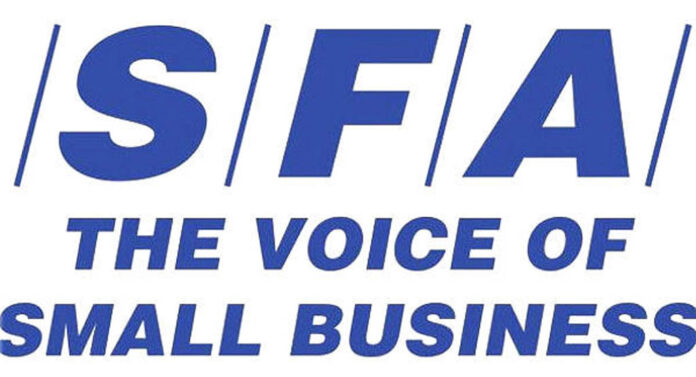The Small Firms Association (SFA) has, following the triggering of Article 50 by the British Government, published a toolkit for small businesses to help them to practically prepare for Brexit.
Sue O’Neill, SFA chair, commented, “Whilst many factors are outside our control, it is important for each small business to assign senior management responsibility to assessing the impact on their own business, and developing contingency plans for likely impacts. Companies should pay particular focus to assessing the potential impacts of currency movements, along with supply chain, commercial contracts, finance and funding and workforce considerations. They should also reassess the impact on technology, in particular issues around data sharing, likely changes to regulation and market access, and change their own operating structures accordingly.”
Ms O’Neill emphasised the singular impacts of Brexit on Ireland, over and above other EU members states, and called on the EU Commission to prioritise these concerns in their negotiating strategy.
“The UK is a key marketplace for our small exporting companies, with 43% of exports from all indigenous exporters going to the UK market. It is a learning ground when they’re starting up, and it is not easy to diversify into other markets farther afield without significant resources, and in the food sector, differing tastes also acts as a barrier. Equally, the UK is our biggest market for tourism visitors, which has an impact on local economies right around the country. The threat of recession in the UK post-Brexit is very real and we would be very concerned about the knock-on implications of that for our entire domestic economy, given our interconnectedness.”
A survey of SFA members identified the three most negative impacts of Brexit on small firms as:
1. Exchange rate movements (48%)
2. Cost of exporting to Northern Ireland/Great Britain (39%)
3. Pricing (38%)
Forty-one percent of SFA members reported in November that Brexit had already had a negative impact on their firms. 68% expect a negative impact in the next six months. A minority of 10% think Brexit will be positive for their business.
A native of Ennis, Colin McGann has been editor of The Clare Champion since August 2020. Former editor of The Clare People, he is a journalism and communications graduate of Dublin Institute of Technology.


